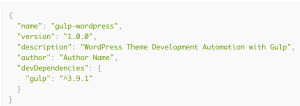Classic Case Study: An effective but risky strategy for late-paying clients
“I still did not receive my payment for month-old work. I’m kind of hesitant to speed up work on your project because I have several projects in progress and my priorities are shifted towards the paid ones.”
So a web developer emailed me the other day. By the way, we (my business partner and I in a web development venture) like her a lot: She is fast, professional, has reasonable rates, and does high-quality work.
Her email was in response to my asking her to give us a sense of when we can expect more project deliverables, as well as to ask if she could devote more time to our project.
Her reply was a bit of a shock to us. We had paid her up front when we began work, and since put two checks in the mail. Apparently she had not received these two checks, which did not make sense. Also, while we knew she was awaiting payment, she never told us that she was on the brink of slowing down work on the project.
The above strategy got our attention, because we really wanted to accelerate progress on our project and, so far, she was our main resource (and design/usability is the bottleneck on this project).
At the same time, it got us frustrated, too, because it came as a surprise given that we thought the “checks were in the mail.”
So, we called her immediately to find out how we could resolve the situation. When we did, we learned that she had moved her office without our knowledge, and so her checks were most likely being forwarded. After our talk, she did accelerate her work, and in fact exceeded our expectations.
I think her approach was in general a good one to deal with clients who are late in paying, with some major caveats. Here are some further thoughts:
WHY IT WAS EFFECTIVE:
– It got our attention. We scrambled to get her on the phone and resolve the problem.
– It used her leverage over us — our need to get work done.
– She responded with an increase in solid production after we talked, thus making up for the tension in the situation and rebuilding any tears in the business relationship. That was a key, smart move on her part, and a great lesson for anyone reading this: Reward the behavior you want to see.
WHY IT WAS RISKY, AND HOW IT COULD HAVE BEEN HANDLED BETTER:
– We needed the project done, and so had some conversations about how to phase her out quickly (after all, we thought the check was in the mail). Her move could have cost her a lot of work.
– She should have sent a warning first, so that we could have resolved the situation without taking it to the brink. After all, honest mistakes on both of our parts led to this problem. The warning should have read: “I still haven’t received payment and am concerned. If we can’t resolve this issue within the week, I will need to focus my time on other, paid projects.”
– We both should have discussed payment terms to know each other’s expectations. We paid her up front to get her started, and didn’t know that she preferred doing business this way. Our normal billing pattern, like most companies, is Net 30 Days. To her, 2-4 weeks post completion of work is a major issue. We have since come to terms.
Interesting case study about payment from both points of view, don’t you agree?
Frequently Asked Questions (FAQs) on Dealing with Late-Paying Clients
What are some effective strategies for dealing with late-paying clients?
There are several strategies you can employ to deal with late-paying clients. Firstly, you can implement a clear payment policy that outlines when payments are due and what the penalties are for late payments. Secondly, you can offer incentives for early payments, such as discounts or other benefits. Thirdly, you can use a professional collection agency to handle late payments. Lastly, you can consider legal action if the client consistently fails to pay on time.
How can I prevent late payments from clients?
Preventing late payments starts with setting clear expectations from the beginning. This includes having a detailed contract that outlines payment terms, deadlines, and penalties for late payments. Additionally, regular communication with the client about their payment status can also help prevent late payments.
What should I do if a client refuses to pay?
If a client refuses to pay, you have several options. You can send a formal demand letter outlining the amount owed and the deadline for payment. If this doesn’t work, you can hire a collection agency or take legal action. However, it’s important to consider the cost and time involved in these options.
How can I protect my business from late-paying clients?
Protecting your business from late-paying clients involves a combination of proactive and reactive measures. Proactively, you can implement strict payment policies, conduct credit checks on new clients, and require upfront payments. Reactively, you can employ collection agencies and legal action when necessary.
Can I charge interest on late payments?
Yes, you can charge interest on late payments. However, this should be clearly stated in your contract or payment terms. The rate of interest should also be reasonable and within legal limits.
How can I negotiate with a late-paying client?
Negotiating with a late-paying client requires tact and diplomacy. Start by having a conversation about the issue, expressing your concerns and listening to theirs. Offer solutions such as a payment plan or a reduced amount if they can pay immediately.
What are the legal implications of late payments?
Late payments can have several legal implications. If a client consistently fails to pay, you can take them to court to recover the money owed. However, this can be a lengthy and costly process.
How can I handle a dispute over a late payment?
Handling a dispute over a late payment requires clear communication and documentation. Ensure you have all the necessary paperwork, such as contracts and invoices, and clearly state your case. If the dispute cannot be resolved, you may need to consider legal action.
Can I refuse to work with a client who consistently pays late?
Yes, you have the right to refuse to work with a client who consistently pays late. However, this should be a last resort and only after you have tried other methods to get them to pay on time.
How can I maintain a good relationship with a client who pays late?
Maintaining a good relationship with a late-paying client can be challenging. However, open and honest communication is key. Discuss the issue with them, offer solutions, and try to understand their situation. Remember, it’s important to maintain professionalism at all times.




